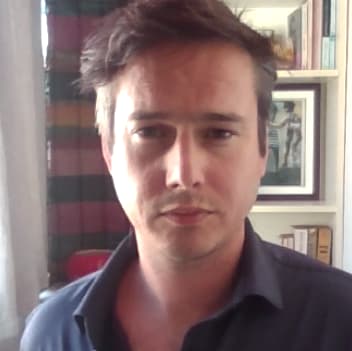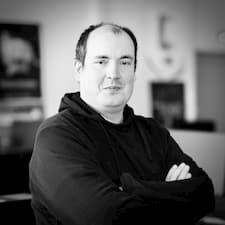
Emmanuel Bonnet is Professor and researcher at ESC Clermont Business School, member of Origens Medialab and Clermont Recherche Management (CLeRMa) at the University of Clermont Auvergne. He is the co-founder of the "Strategy & Design for the Anthropocene" MSc.
His research focuses on collective learning dynamics in indeterminate situations: situations of disorder and disorientation, in which actors do not know or no longer know what they have to do and learn. These learning situations are approached from a pragmatic philosophical point of view, using an ethnographic approach. His thesis investigated a simulation of space exploration in the Utah desert.
Within Origens Medialab, he is participating in a research project that focuses on the "organized world", its presuppositions and the acosmia (loss of world) they engender. He works more specifically on the collapse of "clichés" in learning situations in business schools, about the practices and infrastructures of the "organized world" in the Anthropocene.

Natalia Baudoin is a Bolivian and Venezuelan artist and designer, currently a SACRe doctoral student in the Symbiosis and Soft Matters groups at ENSADLab.
Her thesis "Convergent Design, Symbiotic Bricologies", studies the valorization of traditional crafts in France and Latin America through design.
Her research-creation work consists in questioning the fields of application of these indigenous artisanal knowledges to integrate them into our production system while respecting their culture and cosmology.
She also works in partnership with solidarity banks to promote the socio-economic integration of artisan communities in Latin America.

Sylvine Bois-Choussy joined the 27th Region in 2017 to work on its international dimension and in particular on the partnership with the Bloomberg Philanthropies Foundation as part of the La Transfo program. She is also leading the European study tour program Enacting the commons, which examines the relationship between commons and public action.
Curious about how local actors experiment and initiate transformations in a globalized environment, she has previously led various European projects at the crossroads of artistic, social and urban issues.
She studied at the Sorbonne, the London School of Economics and the Institut des Hautes Etudes en Aménagement des Territoires en Europe.

Erik Bordeleau is a philosopher, writer and curator / fugitive planner. He is currently holding a research position at NOVA University in Lisbon, and is also affiliated researcher at the Art, Business and Culture Center of Stockholm School of Economics. He has published and co-edited several books and articles in different languages at the intersection of political philosophy, contemporary art, world cinema and more recently about blockchain cultures, finance and the monetary turn, among which: Proof of Withdrawal: Finance in the Undercommons (2020); After the Attention Economy: Notes toward a Cosmo-financial New Serenity (2021). In collaboration with Saloranta & De Vylder, he is developing The Sphere, a research-creation project experimenting with Web 3.0 technology to develop new ecologies of funding for the performing arts.

Rémy divides his time between industry, entrepreneurship and research. He teaches metadesign at Sciences-Po Paris, and at the Umea Institute of Design in Sweden, and soon at CY-Cergy.
He is the founder of the advocacy think tank MissionHub. With a special interest in empathy, caring, reflexivity and generative tools. Develops tools for mission and impact. Has set up several international and multidisciplinary groups (portfolios and foresight/research/innovation programs), for Mitsubishi Electric, Samsung, Nokia, Orange, Qwant (music), Brickchain (personal data decentralization infrastructure). Founder of SociableMedia, research program at EnsadLab-PSL (solicitude, creativity, reflexivity) (2009-2015). (partners: MIT Media Lab, Orange, Bell Labs).

Manuel Boutet is a teacher and researcher. He is a sociologist, part of the pragmatist movement, and defends the importance of "investigating about investigations" - not only agents, not only actors, the people he meets are also investigators.
At the moment, he is carrying out investigations within extended communities of explorers in the fields of biocontrol in agriculture, video game communities, puppet audiences, urban travel assistance schemes for the visually impaired, and support for civic services in the structures of the social and solidarity economy.
What guides his commitments is the desire to explore forms of experience and worldviews - ways of finding one's way - in an environment where change is the ordinary, and where norms, however rational they may be, often seem to be a pure exercise of will rather than an effect of adaptation. How in a changing world can communities as well as individuals still find their way?